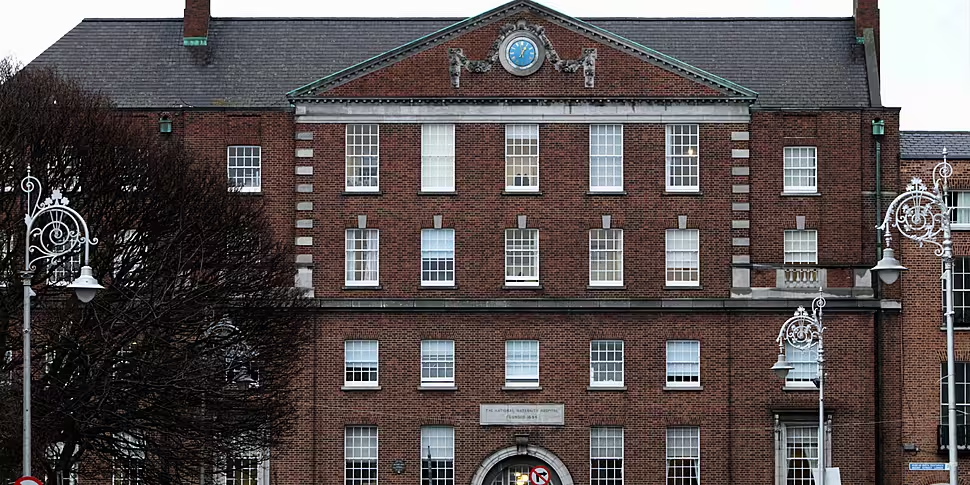The partners, children and parents of patients who have given birth may visit the hospital, according to a letter from the National Maternity Hospital.
The National Maternity Hospital (NMH) appears to have lifted restrictions on postnatal visits following years of restrictions.
A letter seen by Newstalk from the NMH said they welcome any “partner/support person” to visit the mother and child under certain guidelines.
Partners will be given an official visitor’s card, allowing them to visit anytime between 8am and 9pm.
Children and grandparents
People who have given birth may also invite other family members to the hospital: “Children and grandparents may visit between the hours of 6pm and 8pm.”
The guidelines state that partners may be asked to leave or wait to enter the ward during mealtimes or if the unit is too busy. A maximum two visitors are allowed.
It is unclear whether other maternity hospitals have lifted visitor restrictions as well.
This comes after approximately three years of restrictions that banned all visitors to maternity wards.
Recently, visitors were restricted to one “designated support partner”.
"Support"
Chair of the Association for Improvements of the Maternity Service in Ireland (AIMS) Krysia Lynch said the association are “absolutely delighted” at the lifting of restrictions in the NMH.
Ms Lynch said it’s important “all people who are giving birth feel they are supported throughout their journey”.
“[They should] feel they can be advocated for by their partner,” she said. “If they have any dodgy or scary moments, they can be supported by their partners.”
Ms Lynch also said it is important for children to meet their siblings early.
“It can always be difficult to have a new sibling arrive,” she said. “And we know from research that the sooner an older child sees a sibling and gets to welcome them, the easier it is for them to accept the new sibling.”
Ms Lynch also suggested that the number of induced labours and caesarean births have increased since restrictions were introduced.
“We know that it’s probably due to is that people have had less advocacy,” she said. “[Before], they’ve had that person with them all the time to ask questions, to look at options.”
Other hospitals
AIMS hopes other maternity hospitals will lift their own restrictions as well.
“[The NMH] have always tried to ensure that everybody who's coming through has had the kind of support they need,” Ms Lynch said.
“I think that they have been a beacon for smaller units.”
Ms Lynch acknowledged some restrictions should stay in place.
“We still have a lot of constraints in our postnatal wards,” she said. “There are quite a large number of people in public healthcare.”
She said in a room of 12 patients, a large number of visitors could affect a mother’s ability to sleep or breastfeed their newborn.
Newstalk has contacted the NMH for comment









